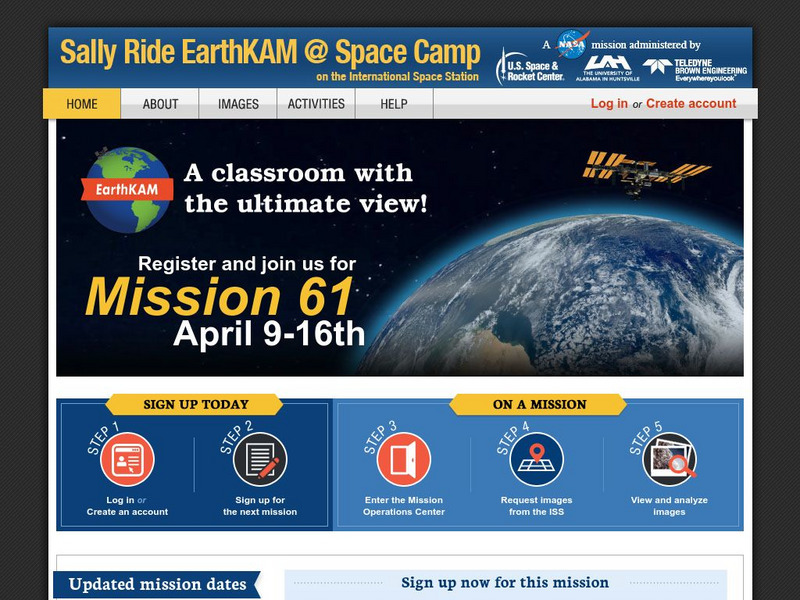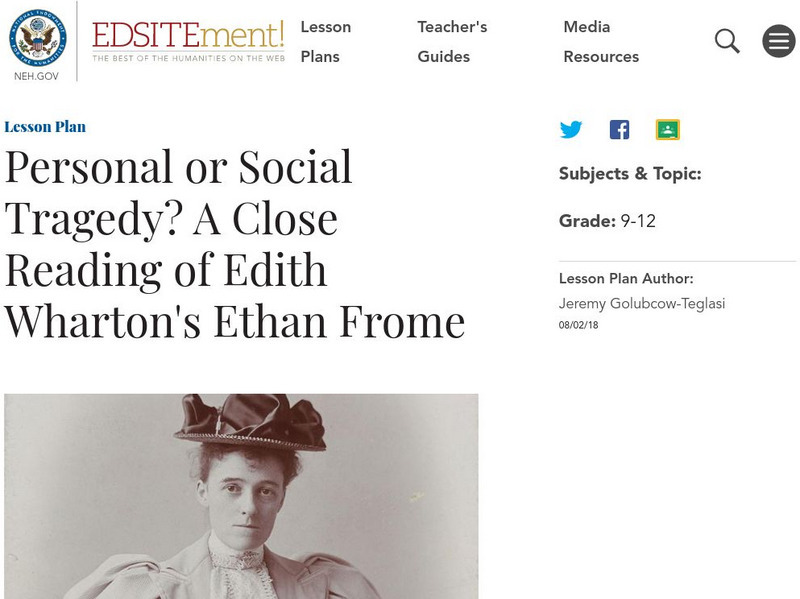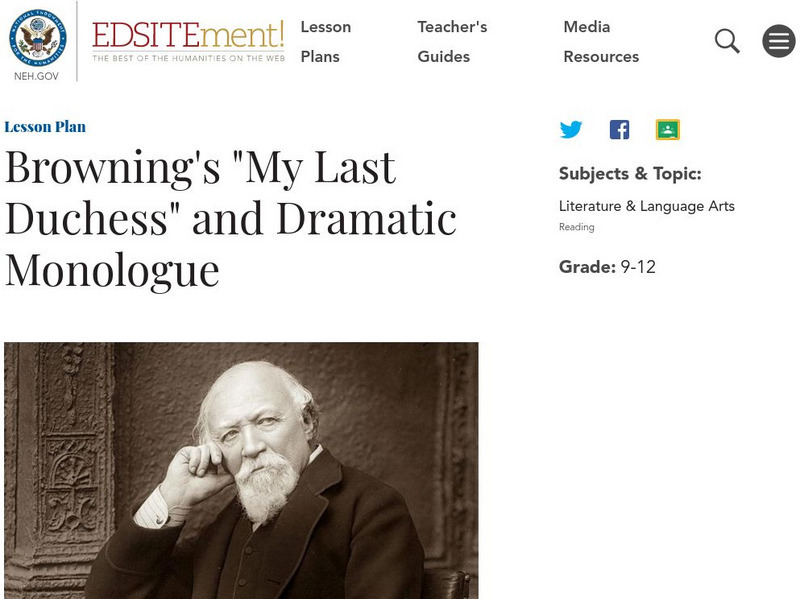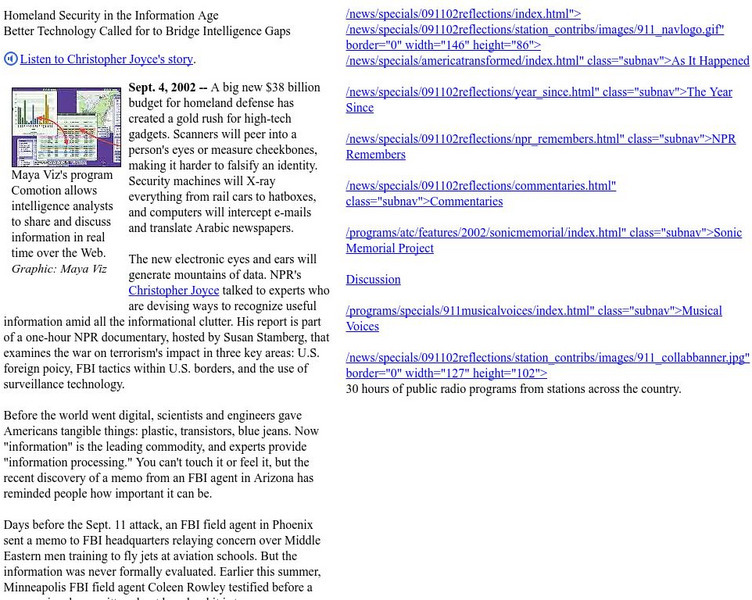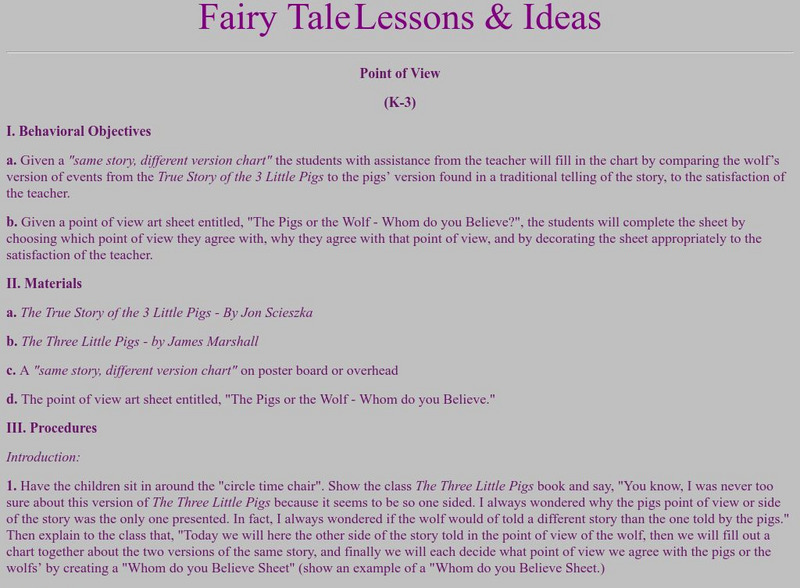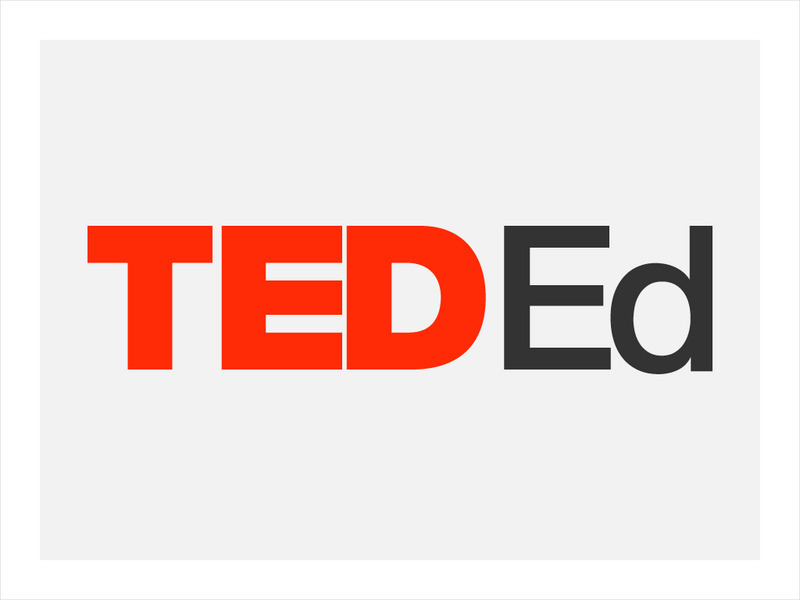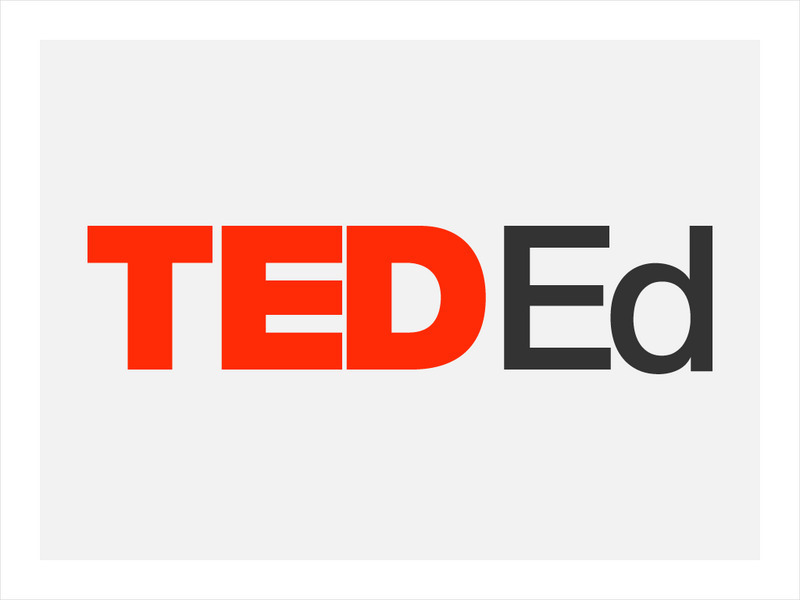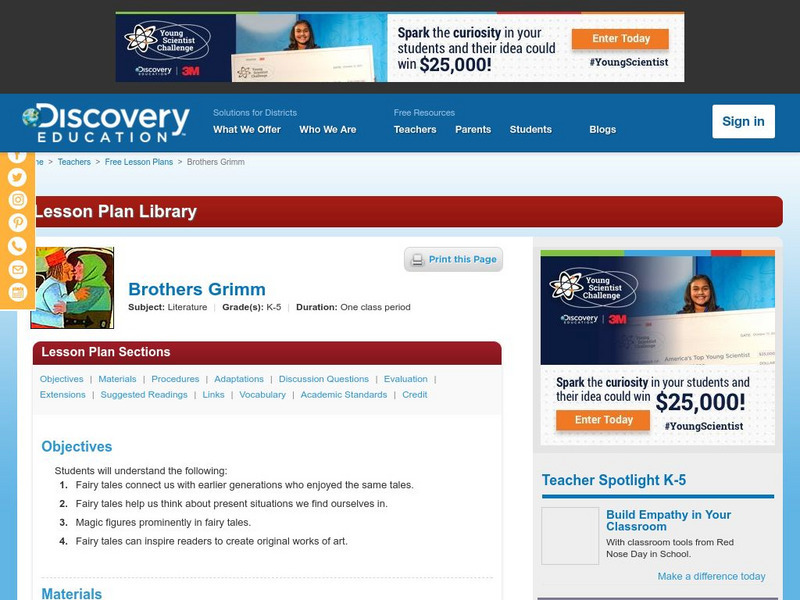Curated OER
Tell-Tale Heart
Students discuss the title of Edgar Allen Poe's story, The Tell-Tale Heart before reading it, and discuss information about the author. They use a graphic organizer to help them comprehend the story as they read.
Curated OER
Palpating Pachyderms: How Do We Interpret Observations?
Students interpret a poem before completing activities to distinguish observations and interpretations. They examine how personal background can influence how a person interpreters what they observe.
Curated OER
Mapping the Border
Learners create maps of the borderland region. They decorate their maps with colors, pictures, icons, scenes, words that reflect their understanding of the character and history of the borderland.
Curated OER
Paleogeographic Mapping (o.k. Fossils Are Neat But What Good Are They?)
Students examine how evidence from fossils can be used in paleogeographic interpretation. They gain experience in developing multiple hypotheses.
Curated OER
Look Again
Students interpret and discuss what they see in a work of art over a period of time.
Other
Nasa: Iss Earth Kam
Students get a whole new perspective of the world through images obtained from the International Space Station. Students can even request images to be taken through ISS EarthKAM. Activities and educator guides are provided.
TeachEngineering
Teach Engineering: Tears in Rain
The goal of this activity is for students to develop visual literacy. They learn how images are manipulated for a powerful effect and how a photograph can make the invisible (pollutants that form acid rain) visible (through the damage...
National Endowment for the Humanities
Neh: Edsit Ement: Personal or Social Tragedy? Edith Wharton's Ethan Frome
This instructional activity will challenge learners to weigh the textual evidence for and against the claim that Ethan's woes lay in staying in Starkfield-and not in the details of his personal relationships. In the process, students...
National Endowment for the Humanities
Neh: Edsit Ement: Analyzing Poetic Devices: Robert Hayden and Theodore Roethke
Students examine the relationship of poetic form and content, shaped by alliteration, consonance, repetition, and rhythm, in two poems about fatherhood: Robert Hayden's "Those Winter Sundays" and Theodore Roethke's "My Papa's Waltz."
National Endowment for the Humanities
Neh: Edsit Ement: Browning's "My Last Duchess" and Dramatic Monologue
Reading Robert Browning's poem "My Last Duchess," young scholars will explore the use of dramatic monologue as a poetic form, where the speaker often reveals far more than intended. The students will later write their own dramatic...
National Endowment for the Humanities
Neh: Edsit Ement: Recognizing Similes: Fast as a Whip
This lesson is designed to help students review what they have learned in earlier classes and to begin to engage with similes on a deeper and more abstract level. Students will define similes and identify examples; read and analyze the...
National Endowment for the Humanities
Neh: Edsit Ement: Emily Dickinson & Poetic Imagination: "Leap, Plashless"
This lesson introduces students to Emily Dickinson's poetry which often reveals a child-like fascination with the natural world. Students examine how she writes perceptively of butterflies, birds, and bats and uses lucid metaphors to...
PBS
Pbs Learning Media: What Was the Harlem Renaissance?
Professor Kate Rushin describes the Harlem Renaissance as a large social and cultural movement fueled by many factors in this video from A Walk Through Harlem.
San Diego State University
Sd State: Elements of Music: Media, Genre, Form Texture
One of the elements of music is "Texture." This site gives the definition, which basically is the relationship between melodic and harmonic.
Science Education Resource Center at Carleton College
Serc: Plant Pest Control
The goal of this learning experience is to familiarize learners with the concept of scientific inquiry, hypothesis formation, experimental design, data analysis, and interpretation. Students will explore the website "Which Pest Control...
NPR: National Public Radio
Npr: Homeland Security in the Information Age
This site provides the story detailing new attempts at sorting and using the large quantities of data generated by security measures in the information age. (4 September 2002)
Other
Teaching Heart: Fairy Tale Lessons & Ideas
Geared toward grades K-3--offers objectives, materials, procedures, discussion questions and evaluations. Online lesson plans for introducing and teaching basic literary criticism skills.
TED Talks
Ted: Ted Ed:why Vermeer's "Girl With the Pearl Earring" Considered a Masterpiece
Is she turning towards you or away from you? No one can agree. She's the subject of Dutch Master Johannes Vermeer's "Girl with the Pearl Earring," a painting often referred to as the 'Mona Lisa of the North.' But what makes this painting...
TED Talks
Ted: Ted Ed: The Unexpected Math Behind Van Gogh's "Starry Night"
Physicist Werner Heisenberg said, "When I meet God, I am going to ask him two questions: why relativity? And why turbulence? I really believe he will have an answer for the first." As difficult as turbulence is to understand...
University of California
Online English: The Hamlet Module: u.c. Davis
Learn more about Shakespeare's "Hamlet," when you visit this online English Module.
Other
European Journalism Centre
The homepage for the European Journalism Centre, a study with analysis and interpretation of ethnic reporting from Russia, Latvia, and Ukraine. Provides up-to-date information about current events and news from Europe.
ReadWriteThink
Read Write Think: Book Sorting: Using Observation and Comprehension
Critical thinking, comprehension and analysis skills are the focus of this physical activity. Good beginning to teaching different ways of looking at things.
Discovery Education
Discovery Education: Brothers Grimm
Start with "The Fisherman and His Wife" and then expand criticism skills to include other Grimm's Fairy Tales. Here you'll get an art project and discussion questions and then further instruction for teaching young students literary...
Philosophy Pages
Philosophy Pages: Aristotle (384 322 Bce)
The life, philosophy and metaphysics of Aristotle (384-322 BCE) are surveyed. The aim of Aristotle's logical treatises (known as the Organon) was to develop a universal method of reasoning by means of which it would be possible to learn...







